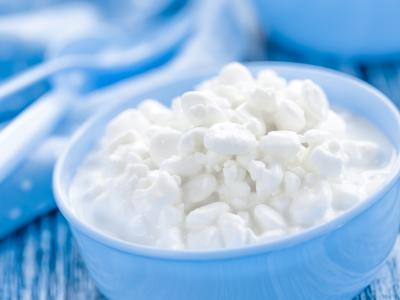Saudi Arabia reports new MERS case linked to camels
Saudi Arabia’s Ministry of Health (MOH) reported one new MERS case today. Like other recent cases, this patient had direct contact with camels.
The MOH said a 78-year-old Saudi person from Sakaka was infected with MERS-CoV (Middle East respiratory syndrome coronavirus). The agency did not specify the patient's sex, which is unusual. He or she is listed in stable condition.
The patient had direct contact with camels, a known risk factor for contracting MERS-CoV. Last year, the World Health Organization (WHO) said people at risk for MERS (diabetics, those with compromised immune systems, and the elderly) should avoid contact with camels and to refrain from eating camel meat or drinking camel milk.
Saudi Arabia's MERS case count since 2012 has now reached 1,454, including 610 deaths. Four patients are still being treated, according to the MOH.
Sep 21 MOH report
Study finds more evidence of effectiveness, herd protection for HPV vaccine
A study that tracked the impact of the human papillomavirus (HPV) vaccine before and after introduction added more evidence that it provides herd immunity in unvaccinated women and dramatically cuts prevalence of the virus in their vaccinated counterparts. A research team based at Cincinnati Children's Hospital Medical Center published its findings yesterday in Clinical Infectious Diseases.
The team recruited 1,180 girls and women from three sites in Cincinnati that provide primary care to adolescents and young adults. They looked at three groups of sexually experienced women ages 13 to 26 years old at three different time points: before the vaccine was introduced from 2006 to 2007, 3 years after introduction, and 7 years after introduction. Over those years, the vaccine rate increased to 71.3%.
Results from cervicovaginal swabs showed that the prevalence of the HPV types included in the quadrivalent vaccine decreased 91% in vaccinated women and 32% in unvaccinated women, which investigators said seems to confirm an earlier study that suggested herd protection.
Jessica Kahn, MD, lead author of the study who is at Cincinnati Children's, said in a press release from the facility, "Our study demonstrates high vaccine effectiveness in a community setting, even among sexually experienced young women who may already have been exposed to HPV." She added that it will be important to gauge the effectiveness over a longer period to see if the vaccine offers sustained protection and if HPV vaccination reduces HPV-related cancers.
Sep 20 Clin Infect Dis abstract
Sep 21 Cincinnati Children's press release
Hong Kong achieves measles-free status
The WHO's Western Pacific region released a statement today declaring that Hong Kong is no longer measles endemic. Hong Kong now joins Australia, Brunei, Cambodia, Japan, Macao, and South Korea as the areas in the Western Pacific that are measles free, according to the WHO.
The Western Pacific Region has had sporadic bursts of measles cases in the last few years; 2012 was the lowest reported number of cases for the region, but there were some outbreaks the following years. Declaring Hong Kong, a city of 7 million, measles-free is considered a victory.
"Worldwide, measles is a major cause of death for children under the age of five, killing 315 people each day," said Shin Young-soo, MD, DrPH, WHO regional director for the Western Pacific, said in a press release. "Measles elimination in Hong Kong underscores the strength and importance of routine immunization programmes as well as close monitoring of disease using a robust surveillance system."
According to the WHO, measles-related deaths have dropped 79%, from 546,800 in 2000 to 114,900 in 2014.
Sep 21 WHO press release
MSF welcomes decision to lower vaccine price
Medecins Sans Frontieres/Doctors Without Borders (MSF) today applauded GlaxoSmithKline's (GSK's) recent decision to lower the price of the pneumococcal conjugate vaccine (PCV), a move the organization has suggested for 7 years. The cost of the vaccine for humanitarian organizations will now be $9.00 per child, or $3.05 per dose.
MSF said lowering the cost of the PCV could encourage more low-income countries to include it in their childhood vaccine rosters, according to the organization's Web site. The organization also said GSK's decision might trigger Pfizer to lower its price, too. GSK and Pfizer are the only two companies that produce a pneumococcus vaccine for children.
"GSK has taken a critical step forward for children in emergencies," said Joanne Liu, MD, MSF's international president, said in an online statement. "With this price reduction, our teams will finally be able to expand their efforts to protect children against this deadly disease. GSK should now redouble efforts to reduce the price of the vaccine for the many developing countries that still can't afford to protect their children against pneumonia."
Pneumonia is the number one killer of kids worldwide, taking almost 1 million lives annually. Earlier this year MSF used the Pfizer vaccine to vaccinate refugee children in Greece at $68.01 per dose.
Sep 21 MSF news release
Sep 21 MSF statement












